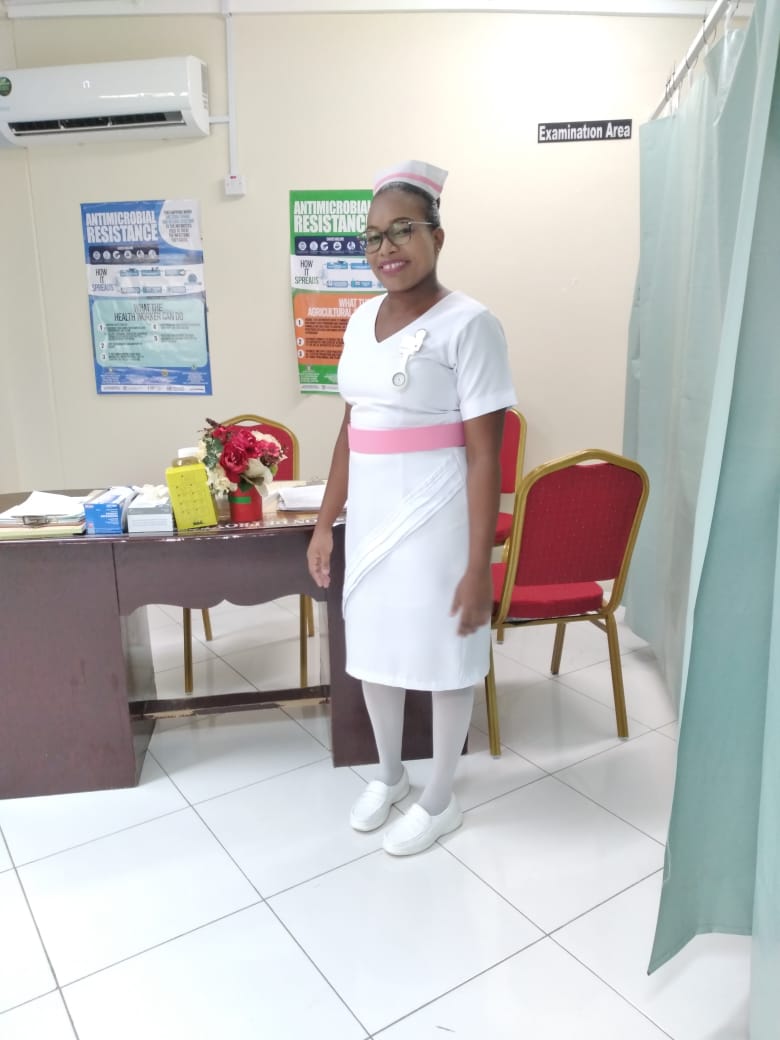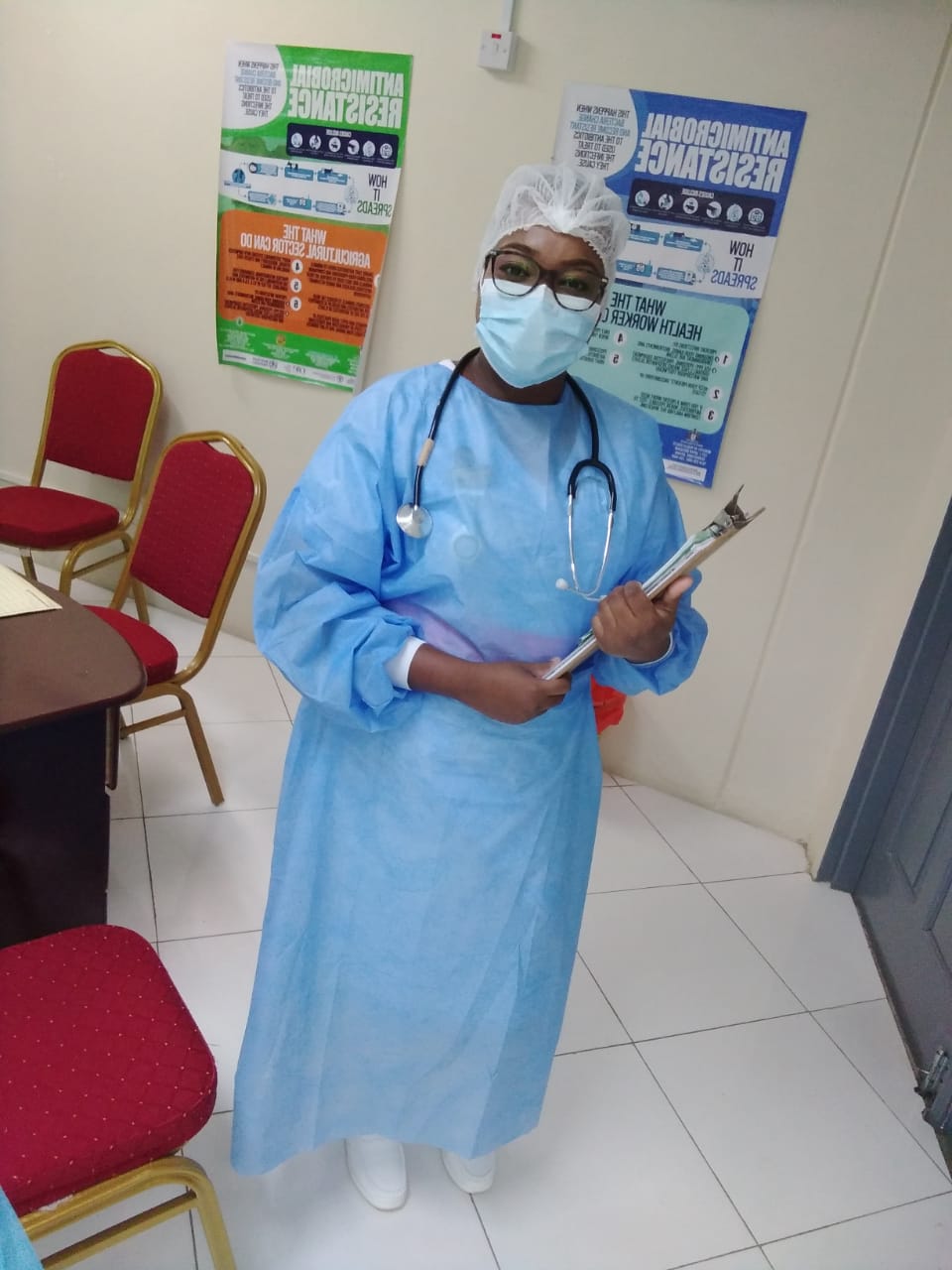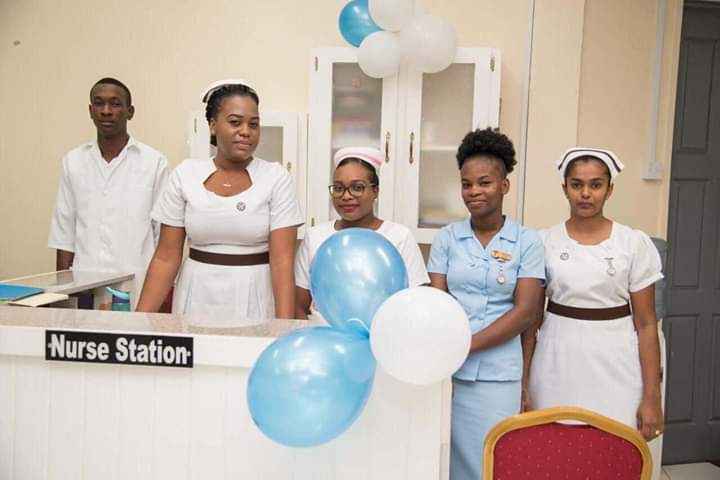By Andrew Carmichael
Nursing is not an easy job and though we think that nurses know everything, the fact is they do not. They sometimes learn from their patients as they go along. Nurses are constantly learning and increasing their skills.
That is exactly what Nurse Lisa Abrahams has been doing ever since she joined the profession, driven by the passion she has always had for nursing.
“It is something I wanted to do since I was little girl,” Abrahams told the Sunday Times Magazine.
Now she is putting smiles on many faces as a nurse. After only three years in the profession, Abrahams is experiencing much job satisfaction.
She is currently on the frontline as one of the nurses in the Accident and Emergency Department at the New Amsterdam Hospital.
She is one of millions of nurses who are honoured during Nurses Week for their commitment to caring for others. International Nurses Day is celebrated around the world every May 12, the anniversary of Florence Nightingale’s birth. Nightingale transformed the job of nursing into a profession which have 20.7 million nurses and midwives according to the World Health Organisation (WHO).
Although Abrahams wanted to join the nursing profession as a child, as she grew up her eyes were set on other prospects. It was not until the age of 17 when her dad became ill that she began seriously considering the profession. She had to care for her ailing father for almost two years while he was bedridden and it was this that led her back to nursing.
“Certain requirements were needed, so, I had to go back and sit Mathematics and then too when you are training, you only receive a stipend and my mother is a single parent, so I had to put certain things in place,” she recounts.
Many persons who want to join the profession would apply and wait for years, some even reapplying several times before being accepted. However, the stars were in Abrahams’s corner and she was accepted shortly after her first application.
“It is not an easy job. Not everything we know. Sometimes we learn from our patients,” the young nurse said.
She graduated in 2018 and was placed at the Paediatric Ward at the New Amsterdam Hospital where she spent more than one year before being sent to the ‘front line’.
“The Paediatric Ward was quite interesting – seeing some of the illnesses of some babies. I never imagined babies could have such illnesses. I was of the belief that babies could not get certain illnesses. I enjoy kids, I like being among them; sometimes they are much easier to deal with as patients. But, being at the A&E makes me a more competent nurse. You have to work quickly and you see all different kinds of things and this makes me want to achieve more professionally,” she said.
On the frontline, Abrahams said, all precautions have to be taken especially, since the world is now battling the novel coronavirus.
“You have to ensure that all precautions are taken and always use your personal protective gear (Personal Protective Equipment — PPE). Being on the frontline is very challenging. During this period, no one wants to be on the frontlines. At times, you have to put your trust in God and he will see you through. Nursing is not a career; it is a calling.”
When asked if there was one thing that she wished she could change in the profession, Abrahams, like many other nurses, noted that that one thing would be the salary.
“Seeing patients reach the state where they are much better and to see them smile with joy. I had this one patient who met with an accident and she felt fearful that she would not have made it, because she had broken limbs and it was her first time in hospital. I did my best with her and looked forward to seeing her every day I went to work. I tried to encourage her and then she got transferred to the Georgetown Hospital because of her condition. Then one day this lady came up to me and said ‘Nursie, you remember me?’, then she told me who she was and I was both surprised and overjoyed,” the young nurse noted in speaking about the impact of her work.
She said she was content with knowing that she was there with her patients during their most vulnerable times since that made her feel as though she was doing some good in the world.
“They will always remember how you made them feel. If you treat them bad, they will remember you for that. Your attitude determines your altitude.”









